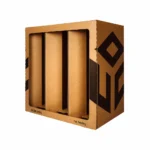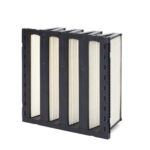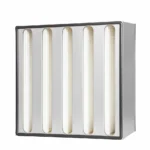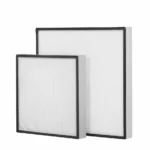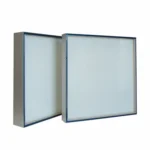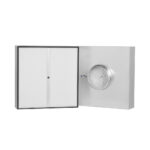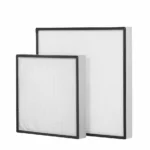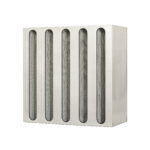EN 1822 Standard. Absolute Filters (EPA, HEPA and ULPA)
Industrial Filter SpecificationsEN 1822 Standard. Absolute Filters (EPA, HEPA and ULPA)
Filter Classification
To HEPA and ULPA Filters, the classification is based on Eurovent 4/4 standard which defines 5 types of Filters: EU 10, EU 11, EU 12, EU 13 and EU 14.
In order to cope with the demands of high technology, there is a need for new testing methods and a new classification of absolute filters
DIN launched in Germany for HEPA and ULPA filters the project DIN 24183, based on particles measurements, CEN accepted as a basic principle system of testing and rating
EN 1822. European standard EN 1822, replaces several national standards such as DIN 24184, BS 3928 and AFNOR 44013.
| INTEGRAL FOR EFFICIENCY * MPPS | Class | ||||
|---|---|---|---|---|---|
| EN 1822 | DIN 24183 | DIN 24184 | BS 3928 | Mil. Std.. 292 | |
| E10 | UE10 | Q | UE10 | – | |
| E11 | UE11 | R | UE11 | > = 99,5% | |
| E12 | UE12 | – | UE12 | > = 99,97% | |
| H13 | UE13 | S | UE13 | > = 99,99% | |
| H14 | UE14 | – | UE14 | > = 99,999% | |
| U15 | UE15 | – | – | ||
| U16 | UE16 | – | – | ||
| U17 | UE17 | – | – | ||
* Comprehensive Efficiency is the average value of all local efficiencies in the front area of the filter
In the first stage of this standard EN 1822, the fractional yield for different filtering measures will be assessed at the same rate in the filter. The purpose is to determine the particle size for which the filter material offers the lowest retention efficiency, this size is called: Most Penetrating Particle Size (MPPS)
The particle size is usually between 0.15 and 0.25
The next step is to know the collection efficiency of the filter for this MPPS
Depending on the performance, leakage and porosity are classified into two groups:
· HEPA (High Efficiency Particulate Air): E10, E11, E12, H13 and H14
· ULPA filters (Ultra Low Penetration Air)
· The Venfilter process for conducting efficiency measurements is done by scanning
The leak test is done separately













